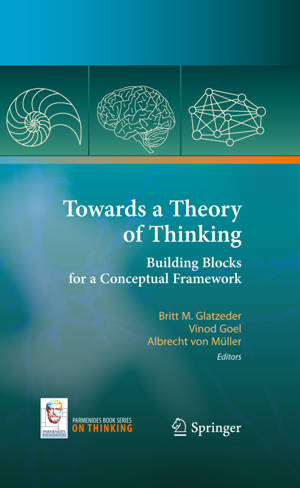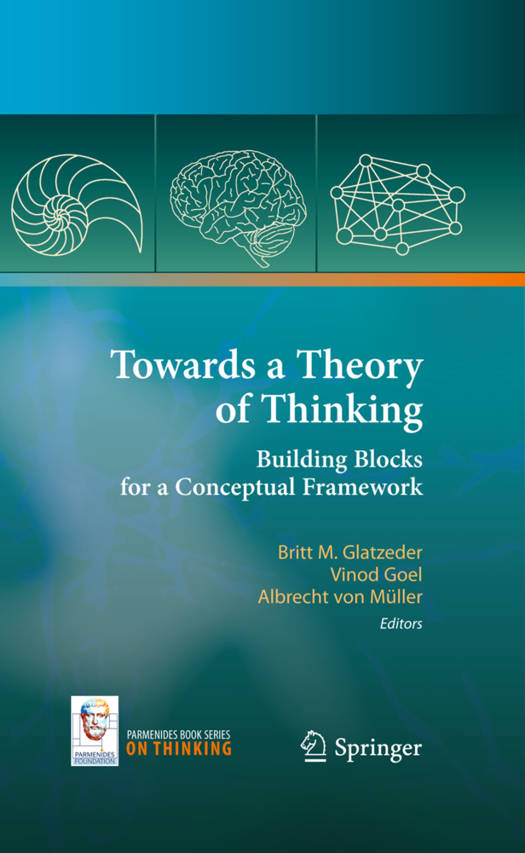
- Afhalen na 1 uur in een winkel met voorraad
- Gratis thuislevering in België vanaf € 30
- Ruim aanbod met 7 miljoen producten
- Afhalen na 1 uur in een winkel met voorraad
- Gratis thuislevering in België vanaf € 30
- Ruim aanbod met 7 miljoen producten
Zoeken
Towards a Theory of Thinking
Building Blocks for a Conceptual Framework
€ 158,45
+ 316 punten
Omschrijving
What is Thinking? - Trying to Define an Equally Fascinating and Elusive Phenomenon Human thinking is probably the most complex phenomenon that evolution has come up with until now. There exists a broad spectrum of definitions, from subs- ing almost all processes of cognition to limiting it to language-based, sometimes even only to formalizable reasoning processes. We work with a "medium sized" definition according to which thinking encompasses all operations by which cog- tive agents link mental content in order to gain new insights or perspectives. Mental content is, thus, a prerequisite for and the substrate on which thinking operations are executed. The largely unconscious acts of perceptual object stabilization, ca- gorization, emotional evaluation - and retrieving all the above from memory inscriptions - are the processes by which mental content is generated, and are, therefore, seen as prerequisites for thinking operations. In terms of a differentia specifica, the notion of "thinking" is seen as narrower than the notion of "cognition" and as wider than the notion of "reasoning". Thinking is, thus, seen as a subset of cognition processes; and reasoning processes are seen as a subset of thinking. Besides reasoning, the notion of thinking includes also nonexplicit, intuitive, and associative processes of linking mental content. According to this definition, thinking is not dependant on language, i. e. also many animals and certainly all mammals show early forms of thinking.
Specificaties
Betrokkenen
- Uitgeverij:
Inhoud
- Aantal bladzijden:
- 380
- Taal:
- Engels
- Reeks:
Eigenschappen
- Productcode (EAN):
- 9783642262517
- Verschijningsdatum:
- 4/05/2012
- Uitvoering:
- Paperback
- Formaat:
- Trade paperback (VS)
- Afmetingen:
- 155 mm x 229 mm
- Gewicht:
- 589 g

Alleen bij Standaard Boekhandel
+ 316 punten op je klantenkaart van Standaard Boekhandel
Beoordelingen
We publiceren alleen reviews die voldoen aan de voorwaarden voor reviews. Bekijk onze voorwaarden voor reviews.










